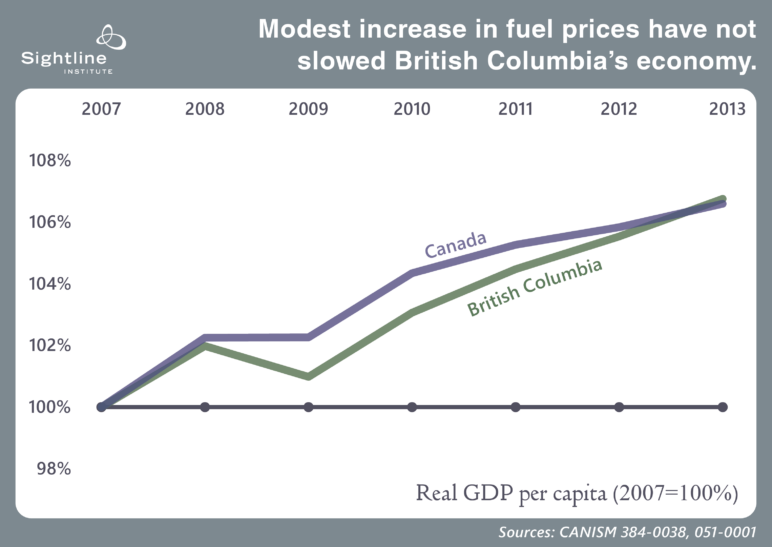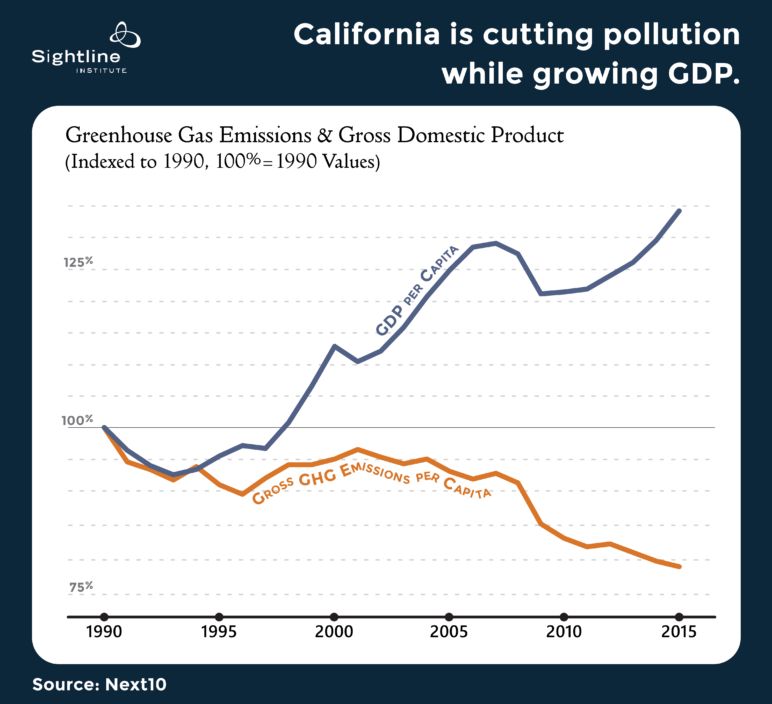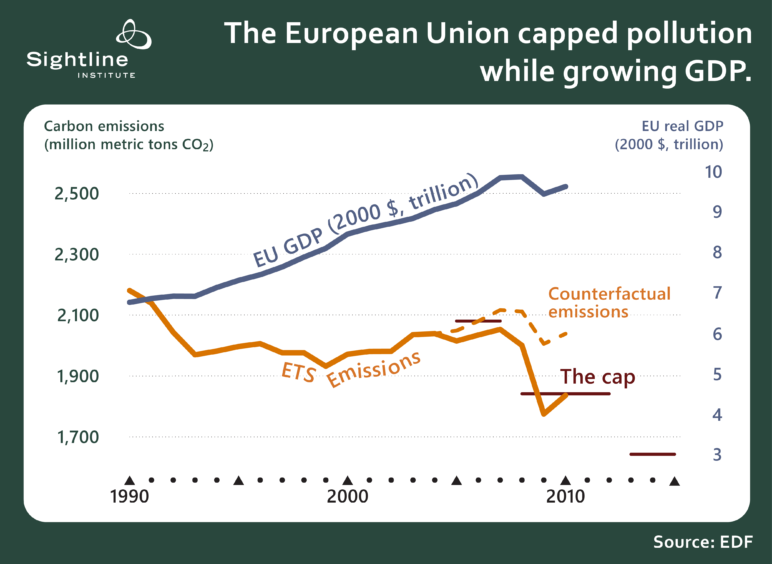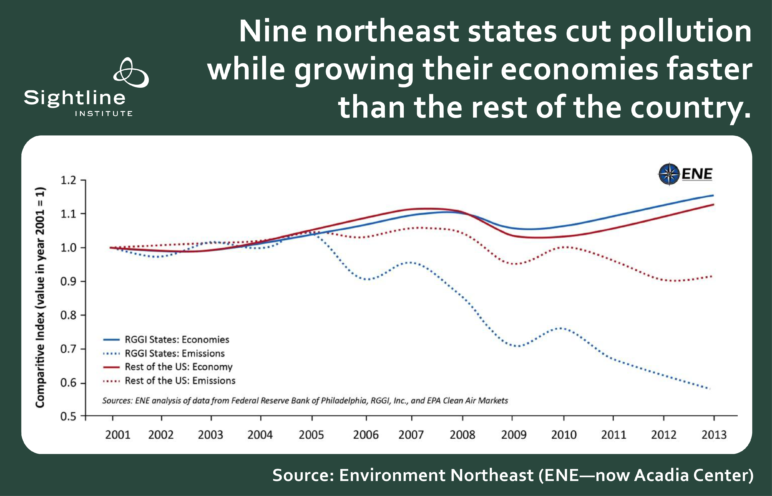This is an exciting moment for Cascadia, a time when BC has doubled down on its carbon pollution tax, when Oregon and Washington have promising bills moving through legislature, and when state leaders are acting on the clearly expressed climate action wishes of their constituents. It is also an urgent moment, as climate impacts take heavier tolls on our communities every year, from more destructive wildfires to damaged shellfish harvests, from decreased snowpack in our mountains to costly droughts on our farms.
Unfortunately, the fossil fuel industry myth machines are hard at work trying to take our eye off that ball and cranking out their same tired claims against climate action (ahem, Portland General Electric); namely, they want people to believe that making polluters pay will wreck the economy, cost rural households more, increase the cost of electricity exorbitantly, only serve the interests of experts, gamers, and big government, and not make a difference anyway, so shouldn’t be implemented now.
Well, I call foul on all of those claims, and in this and four following articles, I’ll spell out how Oregonians would benefit from a polluters-pay measure, specifically that:
- Oregonians would enjoy a cleaner, thriving economy,
- Including and especially rural Oregonians;
- Electricity bills may stay flat or go down;
- A polluters-pay program would be simple, transparent, and efficient; and
- It would mean Oregonians were doing our part to act on our stated climate values.
First up for takedown: the economic scare tactic. Fossil fuel polluters would have the public believe that holding them responsible for their pollution and for its public health and climate damage would decimate local industries, harm small businesses, and bleed jobs. A quick look at the facts shows otherwise.
Oregonians would benefit from a polluters-pay measure
In late 2014, Portland State University researchers studied the impacts a carbon pricing measure would have on Oregon. Testing a range of price points per ton of carbon pollution, they found that holding polluters accountable and reinvesting the money in local priorities would grow jobs and wages, particularly in rural Oregon (more on the rural story in the next article).
In nearly every scenario, the PSU researchers found a carbon price implemented in 2017 would have enabled Oregon to meet its 2020 goal of trimming pollution 10 percent below 1990 levels by 2020. They determined, too, that the most fruitful investments for the resulting revenue would be in local projects like energy efficiency, schools, and road maintenance. In the scenarios where the government spent the money on these types of projects, jobs and wages increased, especially in rural areas. Indeed, the PSU researchers concluded that making polluters pay and investing the revenue in Oregon, as the Clean Energy Jobs Bill does, would create tens of thousands of jobs in Oregon—exactly the opposite of what industry actors would have you believe.
But you don’t have to take that economic modeling on faith. Years of real-world experience show thriving economies when polluters pay.
Oregon would join a growing coalition of strong, carbon-priced economies
Nine northeast states, British Columbia, California, Quebec, and Ontario have all been making polluters pay for years. Their respective economies have kept pace with or exceeded the growth of neighboring states and provinces, even as they led the way on putting their climate values to work and holding polluters accountable for their pollution. The evidence, in four tidy graphs:



Original Sightline Institute graphic, available under our free use policy.

In sum, fossil fuel industry claims of a catastrophic threat to the Oregon economy are unfounded. Fossil fuel corporations merely want to keep polluting for free and shoving the public health and climate costs onto the public as long as they possibly can.
It’s clear, though, that Oregon has a promising economic opportunity before it in the Clean Energy Jobs bill currently moving through the state legislature. Let’s hope it takes full advantage of it.


Comments are closed.